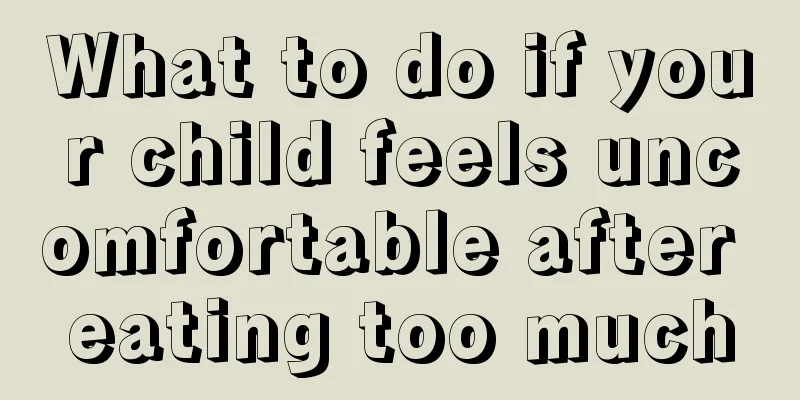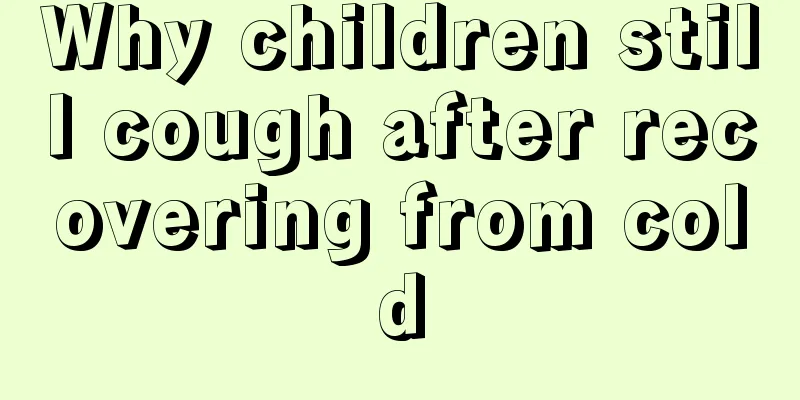What should I do if my baby has a stuffy nose and can't hold the milk?

|
The most important thing for babies every day is to breastfeed. In fact, breastfeeding will also waste a lot of physical energy. If the baby has a stuffy nose, it will seriously affect the mood and appetite for breastfeeding, which will threaten the baby's health. The baby's nasal cavity is very small and easily blocked by secretions. After the blockage, the nasal cavity cannot breathe normally, and it is easy to choke when breastfeeding. So what should I do if the baby has a stuffy nose and can't hold back when breastfeeding? First, what should you do if your baby has a stuffy nose and feels uncomfortable when feeding? When your baby is young, you can use a cotton swab dipped in clean water or sesame oil to gently wipe his nostrils, or put a hot and wet towel on his nose to cover it for a while. My baby is now over 4 years old. Every morning when he wakes up, he drinks a glass of water and washes his face and nose while brushing his teeth. If the baby's nasal congestion is caused by nasal mucus in the nostrils, the above method is feasible, but a healthy baby without nasal congestion does not need to wash the nose every day, and sometimes it will destroy the self-cleaning function of the nose itself. Second, there are many reasons for nasal congestion. It may be that there is nasal mucus in the child's nose that is not cleaned in time, or there is snot in the nasal cavity due to a cold and breathing is not smooth, or the child is holding his breath due to the suffocation when drinking milk, which makes adults feel uncomfortable. I hope that family members will check the child’s nasal cavity. If there is nasal mucus blocking the nostrils, use cotton swabs or toilet paper to clean the nasal mucus and snot in time to keep the respiratory tract open. If you are worried, you can also go to the hospital's pediatric department for a check-up, receive treatment in time, or have it cleaned by a professional doctor. What should you do if your baby has a stuffy nose and has difficulty feeding? Try buying a nasal aspirator. A nasal aspirator can suck out both mucus and snot, which can relieve nasal congestion. Use cold boiled water with a little salt to wash your baby's nose before going to bed every day. Use a small cotton swab and be gentle when washing. Babies with nasal mucus can use this method to clean it and the symptoms of nasal congestion can be significantly improved. Use hot gauze or a cotton swab dipped in hot water to apply on both sides of the baby's nose. The booger will come out soon. This method is actually to soften the booger, which is completely feasible. |
<<: What to do if a 6-year-old child has a stuffy nose?
>>: What are some tips for treating nasal congestion in six-month-old babies?
Recommend
Why is the baby's tongue coated with black?
There are many reasons for the baby's black t...
What changes will occur in your baby during the third month?
The baby's healthy development is very rapid....
Causes of high platelet count in infants and young children
Low platelet count is the first relatively abnorm...
Urinary incontinence in children
Urinary incontinence is a very common disease. Th...
What should we pay attention to when children turn over their foreskin?
Many boys are born with longer foreskins. Many pa...
The symptoms of papules in children are actually very obvious
Once infants and young children suffer from papul...
Treatment for abdominal pain and vomiting in children
We know that children's organs are not yet fu...
What can children take to grow taller?
How tall a child can grow is directly related to ...
Can dexamethasone be used in children?
Dexamethasone is a common drug in daily life. It ...
What calcium tablets can increase height?
When it comes to children's growth, calcium i...
What is the reason for a newborn's pointed head?
In our lives, many babies' heads are not part...
What is the normal value of bilirubin in infants?
There are many common diseases among infants. Whe...
How many types of baby cough are there?
Cough is a disease that is harmful to human healt...
Which type of teething stick is better for children?
When children reach the stage of growing teeth, t...
What to do if you have a low fever due to hand, foot and mouth disease?
Hand, foot and mouth disease is relatively common...









